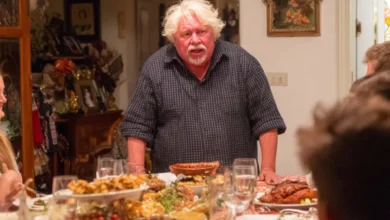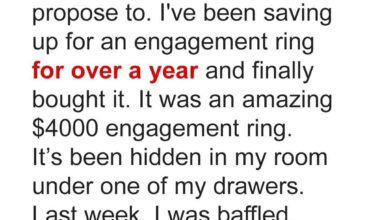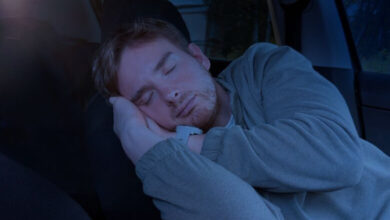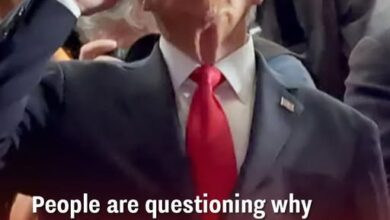I Got Fired for Helping a Man with Dementia, but a Pair of Shoes Proved I Made the Right Choice
I was dismissed for aiding a puzzled older gentleman with dementia who thought his athletic shoes were “escaping.” I believed my kindness had ruined my career. However, when the chief nurse took credit for my good deed, those escaping shoes revealed her dishonesty in a completely surprising manner.
After working at the clinic for three months, I had become accustomed to Karen watching my every action closely. As the lead nurse, she seemed to enjoy finding problems with all my work.
I would try to dismiss it and continue working. This position was not my ideal job anyway.
I always wanted to work in elder care — I had finished many specialized courses in this area — but there I was, avoiding Karen’s harsh comments while trying to stay professional.
“Your paperwork is untidy again, Pam,” she would comment, or “We don’t follow that method here, Pam.” Her tone always had that small hint of pleasure, as if she was storing information for a future disagreement.
The night that transformed everything began poorly and declined further.
The coffee maker was not working, leaving staff without caffeine and cranky. I was exhausted after working for 12 hours, and my night shift replacement called to say she was delayed in highway traffic.
“I’ll need at least one more hour,” she said apologetically on the phone. “There has been a crash.”
I was collecting my belongings, ready to leave when she arrived, when an older gentleman walked slowly through the entrance.
He was wearing a neatly pressed suit that somehow made him appear disoriented, like he had stepped out of a different era completely.
“Hello sir, may I assist you?” I asked.
“There’s a… a… my shoes are untied.” He looked directly at me. “Can you tie them for me, Margaret?”
Something was clearly wrong. My shift had ended, but I could not leave this man standing there, clearly confused, and by himself.
“Certainly,” I answered with a smile. “Please follow me.”
I led him to a quiet area and helped him sit down. Then I quickly went back to the station to get him some water because I didn’t know how long he had been wandering around.
Rules stated we could not treat patients who hadn’t been properly registered, but this man showed dementia signs I couldn’t disregard. I needed to help him.
I gave him the water cup, and he immediately poured it over the fake plant.
“All done!” He smiled proudly. “My Margaret usually waters the roses, but she’s visiting her sister in Toledo.”
“That sounds wonderful! Should we call Margaret to tell her how well the roses are doing?” I suggested, hoping this approach would get him to contact his family.
“That’s why I’m going to the bus station, but,” he looked down at his feet, suddenly worried, “my shoes are untied!”
I looked down to see his shoelaces untied, spreading across the floor like tiny serpents. “They’re attempting to escape again. They always behave this way when Margaret isn’t home,” he said anxiously. “Someone must catch them!”
“Please don’t worry, we’ll secure those sneakers before they travel too far. They can’t outrun both of us, right?”
I leaned down and pretended to capture imaginary sneakers while the elderly gentleman alternated between encouraging me and begging me to hurry before they got away.
Just as I convinced him I had caught his escaping footwear, I heard sharp heel sounds behind me.
Karen’s voice sliced through the silence harshly. “What are you doing here?”
I rose slowly from securing his laces, my pulse racing. “This gentleman requires assistance. He is disoriented and—”
“You are violating protocol!” Karen’s complexion turned an alarming red, but her eyes showed cruel pleasure. “You understand we cannot treat patients who haven’t been properly registered. You are terminated!”
“He suffers from dementia,” I argued, pointing to the man who now hummed quietly. “He might get lost or injure himself. We cannot simply—”
“Your employment ends now,” she interrupted, her eyes gleaming with satisfaction. She had waited for an opportunity like this since my arrival. “Empty your locker and surrender your badge at the reception desk.”
“Very well.” I inhaled deeply, straightening my posture. “Just allow me to finish helping him first. I will not abandon him in this state.”
After careful questioning, the elderly man produced a wrinkled paper with an address and phone numbers. I passed these to Lisa, the receptionist, who assured me she would contact his family immediately.
“I will ensure someone comes for him,” Lisa whispered, gripping my hand supportively. “Karen’s actions are unfair.”
As I removed my items from my locker, my hands trembled with anger and uncertainty, making me question if I had made the correct decision.
Three years studying nursing, two years of specialized elder care training, possibly wasted because I couldn’t ignore someone who needed help.
Before departing, I checked on the elderly man once more, but he had vanished. No staff knew when or how he had left. Guilt weighed heavily as I drove home, imagining him wandering alone on the streets.
The following day, my phone constantly buzzed with notifications. I disregarded the calls, thinking they were telemarketers or perhaps Karen, calling to further upset me.
I spent my morning updating my resume and examining job postings, trying to avoid self-pity.
When someone knocked that evening, I nearly ignored it. My work clothes were washing, my hair looked messy, and I felt unready for company. Yet something compelled me to answer.
There stood the same elderly gentleman from the clinic, except now he appeared completely lucid.
He appeared dignified in a flawless suit, every gray strand perfectly positioned, accompanied by an aide who resembled someone from a corporate publication. His gaze was focused and bright, sparkling with wisdom.
“Would you permit me entry?” he inquired, his speech distinct and powerful. “I think I should provide you with clarification.”
Sharing coffee at my kitchen table, Harold, as he presented himself, revealed everything. He owned the Healthcare Network and had been performing an ethics evaluation across all his medical centers. I was the sole person who succeeded.
“Earlier today,” he described, mixing his coffee thoughtfully, “I observed Karen attempting to receive recognition for your generosity. She visited my office, utilizing your observations about my condition as evidence she had assisted me. She nearly radiated with self-importance, discussing her commitment to patient services.”
He gestured disapproval. “When I questioned her about the escaping sneakers, she could not conceal her bewilderment. Her expression revealed everything.”
Harold grinned. “I dismissed her immediately and notified the professional organization. Falsifying documents and professional carelessness – her nursing profession is finished.”
Harold’s aide set a substantial folder on the table. Inside were architectural plans for what appeared to be an extensive medical facility, unlike any I had previously encountered.
“My father experienced dementia,” Harold mentioned quietly, his fingertips following the building’s outline. “I saw him endure in places that handled him like an issue requiring management rather than an individual deserving care.”
“The employees were efficient but unfeeling, more focused on timetables and procedures than personal respect,” he continued. “He frequently believed his shoes were escaping…”
His words faded, and he smiled sadly. “After Dad died, I vowed to establish something different – a location where dementia patients could receive treatment with respect and empathy. I want you to manage it.”
I viewed the architectural plans, my sight becoming unclear with emotion.
The facility contained everything I had imagined implementing: therapeutic gardens, recreational spaces, family gathering areas, and an employee education program centered on compassionate care.
“But I’m merely -” I began to object.
“You’re precisely what I’ve been searching for,” Harold intervened, moving closer. “Someone who recognizes people, not procedures, who comprehends that kindness sometimes outweighs regulations. Someone who would endanger their employment to aid a bewildered senior with his escaping sneakers.”
All those specialized courses, all that additional education I believed had been squandered – it had all guided me to this opportunity.
“Yes,” I said softly, then more audibly, “Yes, I accept.”
Harold smiled broadly. “I anticipated that response. Shall we examine how to transform this vision into reality? I have several concepts about incorporating recent memory care research, and I would appreciate hearing your perspectives on staff development.”
As he explained his plan for the facility, I found myself grinning at the unexpected turn of events. Just one day earlier, I believed my professional path had ended. Instead, it was merely starting, all because I had paused to secure a pair of escaping athletic shoes.



